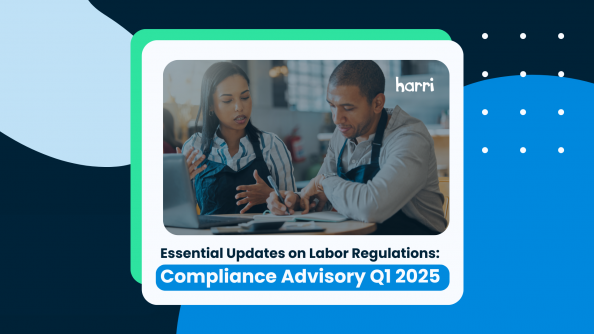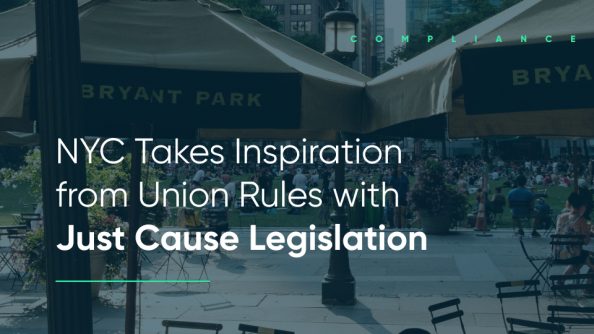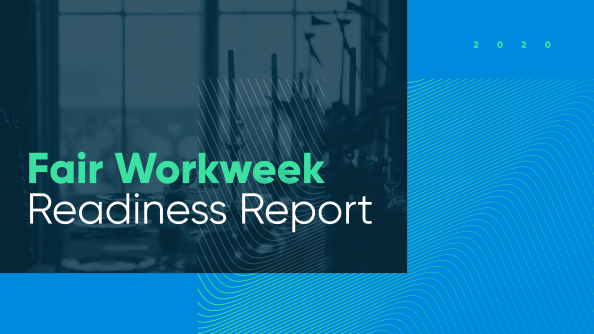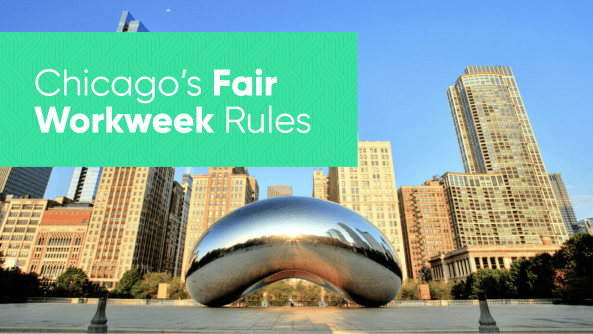Do You Live Near a Fair Workweek City? It’s Time to Start Preparing
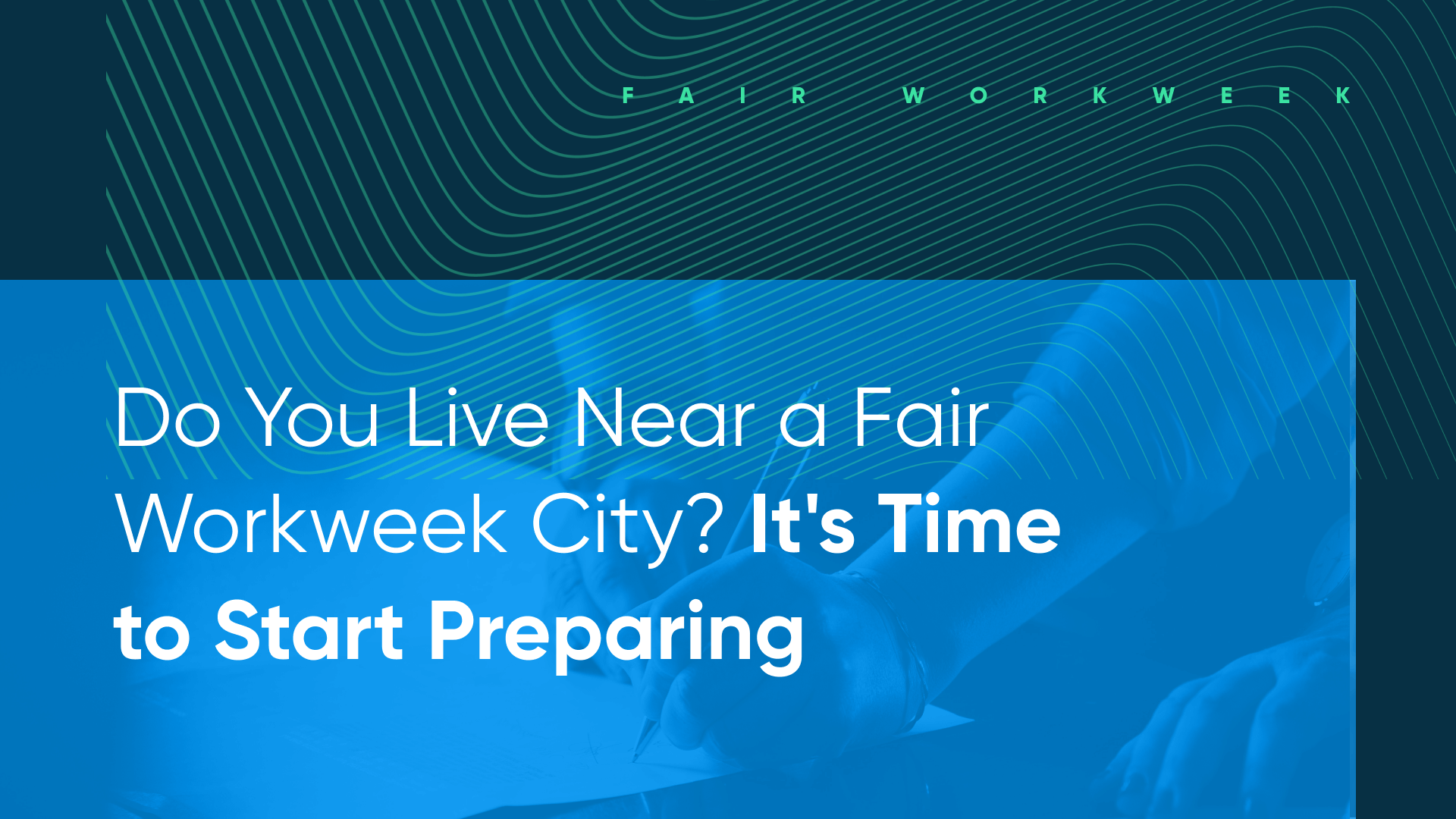
- By Harri Insider Team | March 2, 2021
Major cities across the United States are adopting Fair Workweek labor laws, which means businesses operating near these Fair Workweek jurisdictions are more likely to see similar predictive scheduling laws in the near future.
A Biden-led presidency, which typically favors pro-employee legislation, only solidifies the possibility of this future. As of January 1, 2021, new labor laws were introduced in at least 18 states, plenty of which included legislation related to employee hours and schedule.
Though these ordinances may feel distant, businesses not operating in a Fair Workweek city or state need to start preparing now. The more familiar you are with Fair Workweek requirements, the less disruptive operational changes will be to your labor practices…and your bottom line.
So, what is Fair Workweek?
Fair Workweek is a set of predictive scheduling laws designed to create a stable, practicable working environment for service-level and tipped employees. These laws can also be known as Predictability Pay, Predictive Scheduling, or Secure Scheduling laws.
Low-wage employment paired with unpredictable hours, typically in foodservice and retail industries, sparked the Fair Workweek movement.
For service-based employees, a schedule is the crux of their life. Child care, schooling, travel, payroll budgeting, and other life events are planned around their work schedule. So when those schedules are subject to drastic, last-minute changes, these employees see a significantly reduced quality of life.
While Fair Workweek ordinances differ slightly by jurisdiction, they all follow the same basic formula
- Employers must send employee schedules within an advanced notice period
- Schedule changes outside of the advanced notice window are subject to premium payments to affected employees
- Employees have the right to decline previously unscheduled hours
- Rest periods between shifts (8-10 hours typically)
- Employers provide Good Faith Estimates of expected employee working hours
These requirements may vary depending on city or state. Different Fair Workweek jurisdictions may also contain additional requirements related to scheduling, on-call, stand-by employees, new shift prioritization, and more.
Who should start preparing for Fair Workweek?
To put it simply, every business that employs service-based employees should begin preparing for Fair Workweek or similar predictive scheduling laws. With Biden coming into office, the government has already begun pushing pro-employee legislation onto businesses.
Fair Workweek typically applies to foodservice and retail businesses, but other industries such as manufacturing and wholesale may be applicable, too. Chicago Fair Workweek, for example, covers the broadest range of industries, indicating that Fair Workweek coverage may expand as they grow in popularity.
Some Fair Workweek laws have business requirements, such as operating out of X number of locations or employing Y number of employees. In some jurisdictions, these laws target enterprises and franchises, but smaller businesses may be required to comply as well.
And for businesses that currently do not need to comply with Fair Workweek specifically? They probably are subject to the Fair Labor Standard Act (FLSA) or other labor laws where day-to-day compliance would benefit from a Fair Workweek strategy.
It’s important to note that there’s no one-size-fits-all formula to navigate Fair Workweek — it’s a balancing act between labor efficiency and meeting predicted service demands. The more your team prepares in advance, the less disruption you’ll face (and potential legal fees) if and when the laws apply to your business.
Where is Fair Workweek in effect now?
As of February 2021, Fair Workweek labor laws are active in:
- New York City
- Oregon
- Philadelphia, PA
- San Francisco, CA
- San Jose, CA
- Emeryville, CA
- Seattle, WA
- Chicago, IL
Other jurisdictions have pending Fair Workweek rules in the pipeline, which means they might be some of the first cities and states to enact predictive scheduling laws. These include the states of Illinois and New Jersey, and the cities of Boston, MA, Los Angeles, CA, and Washington DC.
How you can prepare for Fair Workweek scheduling laws
Hospitality businesses looking to prepare for Fair Workweek should begin by assessing current scheduling practices and related policies. Take time to audit your employee scheduling software and check that it will facilitate compliance.
A good scheduling software problem should be able to:
- Apply FWW rules to each location you operate in
- Allow managers to create and share schedules in advance
- Allow employees to bid on open shifts and swap shifts, and otherwise have employees engage in the scheduling process
- Integrate with payroll software to account for premium pay incurred from last-minute schedule changes
- Warn managers of potential compliance breaches
- Maintain updated records of schedules, hours worked, premium payments, and violations
Once your new policies and scheduling software have been sorted, take time to properly train managers and staff on employee rights and compliance requirements.
Although the right solution will ensure compliance and proactively warn team members of any potential violations, team members should be aware of the Fair Workweek requirements.
This is especially true for hospitality where labor demands can change on a dime. Managers must be able to properly gauge when calling someone in last-minute –and incurring a premium payment as a result– is worth the spend.
Day-to-day operations and labor spend will change, but you can set your business up for success by integrating the best practices and solutions you can.
Finding a Fair Workweek solution for hospitality
Hospitality is incredibly unpredictable, and managers must be prepared for sudden changes in labor availability and demand. Mistakes can be dangerous, resulting in a poor guest experience, a strained employee experience, and Fair Workweek fines up to $1,000 per violation.
The right scheduling solution is built to proactively manage Fair Workweek requirements and guide hospitality teams through the law’s various complex requirements.
Harri is the only hospitality-focused HCM platform truly built to handle the specific nuances of Fair Workweek on the state and local levels.
Drive operational success in your business by empowering teams with a solution that automatically manages schedules, monitors fees, and reports premium pay. When you have an adaptable tool to proactively tackle Fair Workweek requirements, your team can spend less time focusing on compliance and more time creating an amazing guest experience.
Harri tackles the 5 must-haves of Fair Workweek so your team can better prepare for long-term compliance and labor-efficient scheduling.
1. Easier good faith documentation
Create, manage, and send good faith estimate documentation to employees in compliance with local requirements. Get notified when annual or shift-based renewals are needed.
2. Demand forecasting for smarter advanced scheduling
Build schedules that utilize historic sales data, activity-based intelligence, and demand forecasting to assess the precise amount of labor needed weeks in advance.
3. Real-time compliance management
Schedule changes, employee-initiated shift swaps, sick time, and time-off requests get processed instantly to ensure up-to-date compliance.
4. Prevention management and alerts
Get notified when publishing changes to a schedule that will result in premium pay entitlements, or when Fair Workweek documentation is due such as advanced schedules or updated good faith estimates.
5. Audit violation notifications
All employee records are automatically saved so you can view and audit detailed reports on premium payments, schedule changes, and more.







